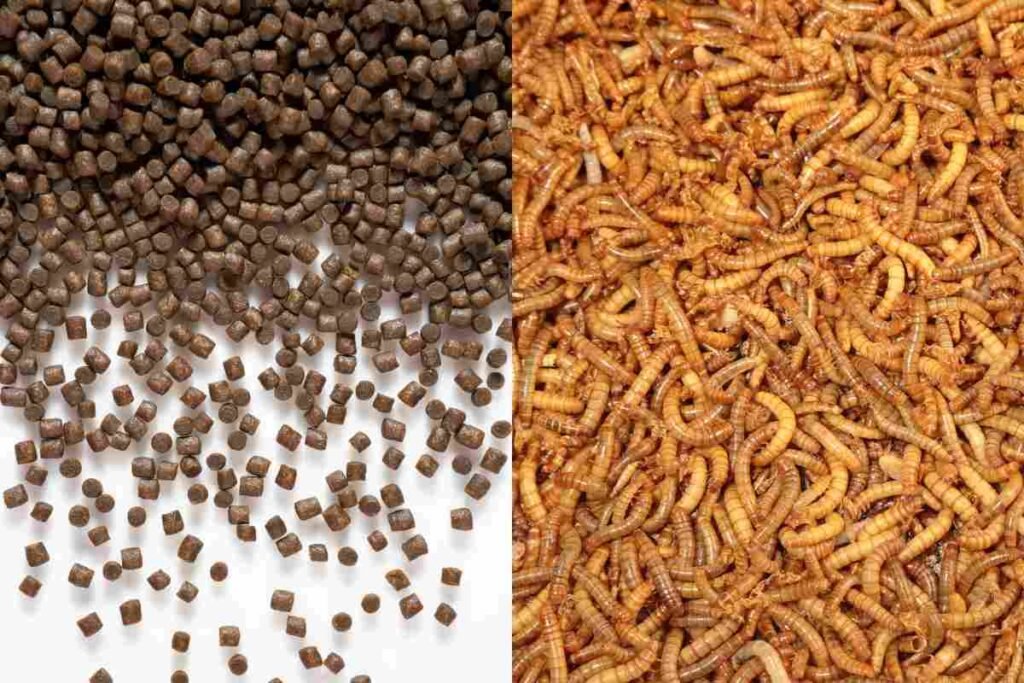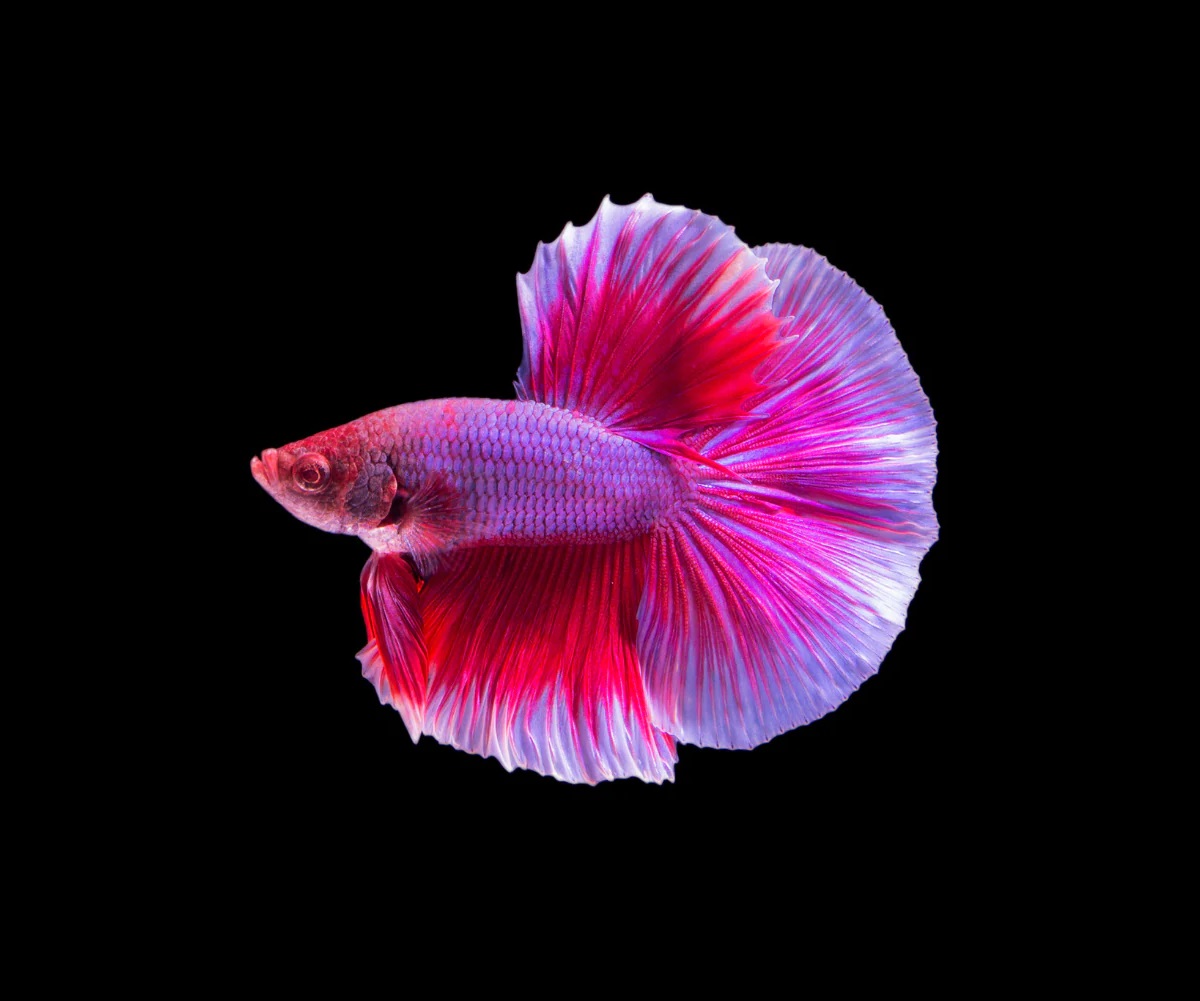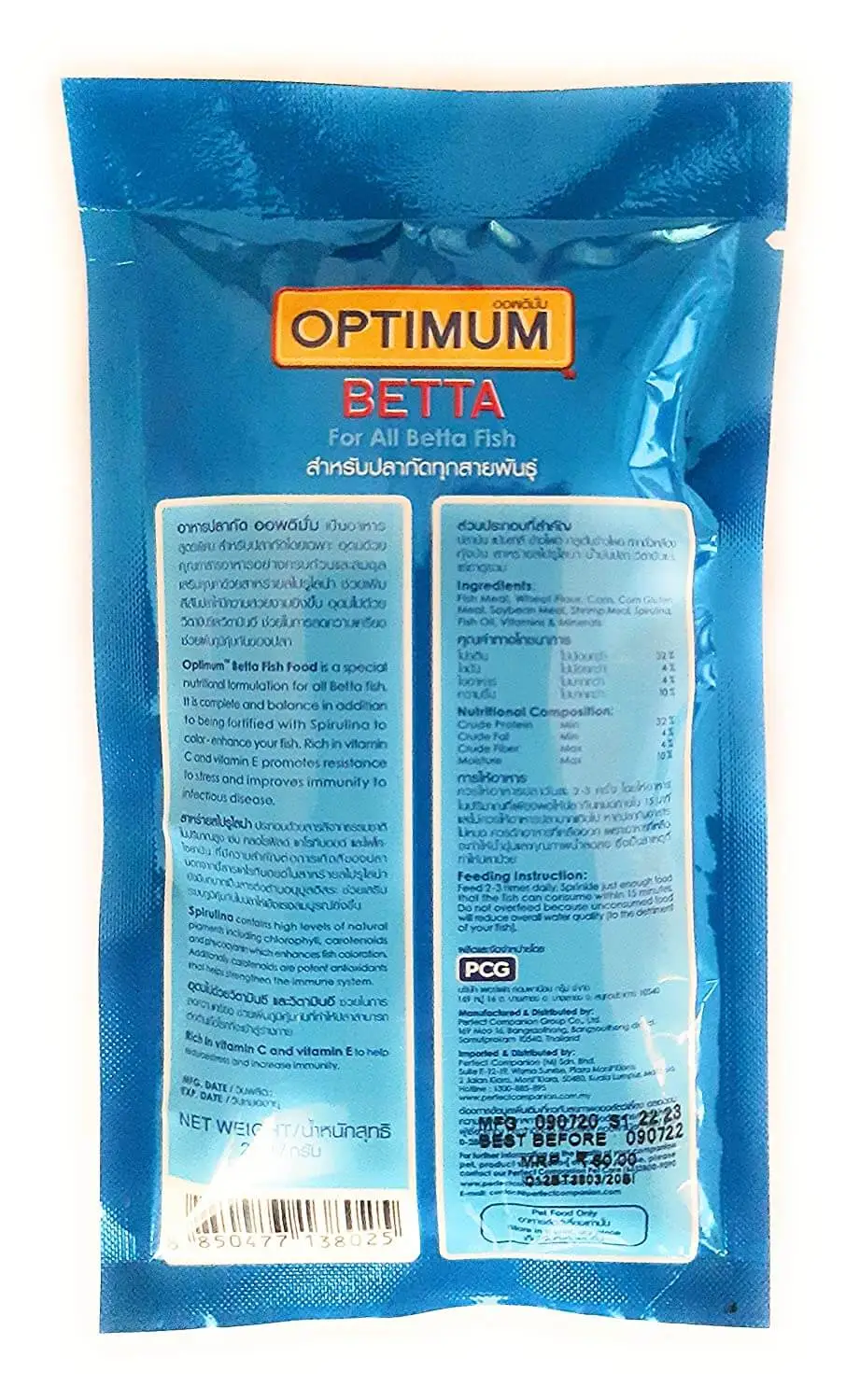Betta Fish Nutrition Facts: Essential Diet Tips

While they may seem low-maintenance, providing proper nutrition is essential for their well-being. High-protein betta pellets designed specifically for bettas should be the main component of their diet. Ensuring a balanced diet with the right nutrients will help keep your betta fish healthy and happy.
We will explore the essential nutrition facts that every betta fish owner should know to provide the best care for their aquatic companions.
Table of Contents
Introduction To Betta Fish Dietary Needs
Betta fish require a high-protein diet, typically fed with high-quality betta pellets. Other food options include live or frozen brine shrimp and bloodworms. It’s essential to provide a balanced diet for optimal health and vibrant colors for these colorful aquarium fish.
Betta fish, also known as Siamese fighting fish, are a popular choice for aquarium enthusiasts due to their vibrant colors and impressive fin displays. They have various color, Such as Black, White, Orange, Metallic, etc. However, to maintain their health and happiness, it is important to ensure that they receive a balanced diet.
In this article, we will explore the natural dietary habits of bettas and the importance of providing them with a well-rounded nutritional intake.
Importance Of A Balanced Diet
A balanced diet is crucial for the health and wellbeing of any living creature, and betta fish are no exception. Providing a varied diet that includes all the necessary nutrients will help to keep your betta fish healthy, happy, and active. A well-rounded diet can also help to prevent obesity, which can lead to a range of health problems, including swim bladder disease.
Natural Dietary Habits Of Bettas
In the wild, betta fish are carnivorous and primarily feed on insects, larvae, and small crustaceans. They have a high protein requirement, and their natural diet is rich in protein and fat. However, it is important to note that bettas are not exclusive carnivores and also consume plant matter in the wild. Therefore, providing a balanced diet that includes both protein-rich foods and plant matter is essential to meet their nutritional needs.
Protein-rich foods for bettas:
- High-quality betta pellets
- Frozen or live bloodworms
- Frozen or live brine shrimp
- Frozen or live daphnia
Plant matter for bettas:
- Spirulina
- Blanched peas
- Zucchini
- Spinach
It is important to avoid overfeeding your betta fish, as this can lead to obesity and other health issues. A good rule of thumb is to feed your betta fish a small amount of food twice a day, and to adjust the amount based on their appetite and activity level.
In conclusion, providing a balanced diet that includes both protein-rich foods and plant matter is essential for the health and wellbeing of betta fish. By following these dietary guidelines, you can help to ensure that your betta fish remain healthy, active, and happy.

Credit: facts.net
Key Nutrients For Betta Health
Betta fish, also known as Siamese fighting fish, are popular aquarium fish renowned for their vibrant colors and impressive fin displays. To ensure the health and vitality of your Betta, it’s crucial to provide them with the essential nutrients they need. Key nutrients play a vital role in supporting their overall well-being and immune system. In this article, we’ll explore the primary nutrients that are essential for the health of Betta fish.
Protein: The Primary Requirement
Protein is a fundamental nutrient for Betta fish, serving as the building blocks for their muscles, tissues, and overall growth. A high-quality protein source is crucial for maintaining their health and vitality. When selecting Betta fish food, ensure that it contains a significant percentage of protein, typically around 40-50% to meet their dietary needs.
Read More: Betta Fish Alternatives: Top 5 Vibrant Tank Mates!
Roles Of Fats And Carbohydrates
Fats play a crucial role in providing Betta fish with energy and supporting various bodily functions. Opt for Betta fish food that contains healthy fats to ensure proper nutrition. Additionally, carbohydrates serve as a source of energy for Betta fish, aiding in their overall metabolic functions. While their primary dietary requirements revolve around protein, a balanced diet containing fats and carbohydrates is essential for their overall well-being.
Choosing The Right Betta Food
When it comes to ensuring the health and vibrancy of your Betta fish, selecting the appropriate food is paramount. Betta fish, also known as Siamese fighting fish, require a well-rounded diet to thrive. Let’s explore the key considerations when choosing the right food for your Betta.
Comparing Pellet, Flake, And Frozen Options
- Pellet Food: Offers balanced nutrition in a convenient form.
- Flake Food: Can be messy but provides variety in texture.
- Frozen Food: Rich in nutrients and mimics natural prey.
Ingredients To Look For In Betta-specific Formulas
| Key Ingredients | Benefits |
|---|---|
| High Protein Content | Supports muscle growth and overall health. |
| Omega-3 Fatty Acids | Aids in maintaining a healthy immune system. |
| Vitamin Enrichment | Promotes vibrant colors and vitality. |
By opting for Betta-specific formulas with these essential ingredients, you can ensure that your Betta fish receives the necessary nutrients for optimal health and well-being.

Credit: www.amazon.com
Feeding Frequency And Quantity
Betta fish, also known as Siamese fighting fish, require a proper feeding schedule to maintain their health and well-being. Knowing the right feeding frequency and quantity is crucial to prevent overfeeding or underfeeding, which can lead to various health issues. Here are some guidelines to ensure your betta fish receives the appropriate nutrition.
Daily Feeding Guidelines
When it comes to feeding your betta fish, it’s essential to establish a consistent routine. Adult bettas should be fed once or twice a day, while young bettas may require up to three small feedings daily. A general rule of thumb is to feed your betta fish an amount they can consume within 2-3 minutes, ensuring there are no leftover food particles.
Signs Of Overfeeding And Underfeeding
Overfeeding can lead to obesity, constipation, and water quality issues, while underfeeding can result in malnutrition and stunted growth. Signs of overfeeding include uneaten food, bloating, and a lack of interest in eating, whereas underfeeding may be evident through reduced activity, weight loss, and a sunken appearance.
Supplemental Foods And Treats
Supplemental foods and treats play a crucial role in the overall health and well-being of betta fish. While high-quality betta pellets should form the staple of their diet, occasional treats and supplemental foods can provide essential nutrients and enrichment. Understanding the safe live foods for occasional treats and weighing the risks and benefits of dietary variety is important in ensuring the optimal nutrition of betta fish.
Safe Live Foods For Occasional Treats
When offering live foods as treats for betta fish, it is essential to ensure that they are safe and appropriate. Safe live foods for occasional treats include:
- Bloodworms
- Brine shrimp
- Daphnia
- Mosquito larvae
These live foods not only provide a source of essential nutrients but also offer bettas the opportunity to exhibit natural hunting behaviors, promoting their physical and mental well-being.
Risks And Benefits Of Dietary Variety
Introducing dietary variety to a betta fish’s diet can have both risks and benefits. While variety can help ensure a more balanced nutrient intake, it is crucial to monitor the impact of new foods on the fish’s health. Some risks and benefits of dietary variety include:
| Risks | Benefits |
|---|---|
| Increased risk of digestive issues | Enhanced nutrient intake |
| Potential food allergies | Stimulation of natural foraging behaviors |
Monitoring the betta’s response to new foods and ensuring a gradual introduction can help mitigate potential risks while maximizing the benefits of dietary variety.
Common Feeding Mistakes To Avoid
When it comes to caring for your betta fish, proper nutrition is essential for their health and well-being. However, there are common feeding mistakes that many betta owners make, which can have detrimental effects on their fish. By being aware of these pitfalls, you can ensure that your betta receives the best possible diet to thrive and flourish.
Using Non-betta-specific Foods
One of the most common feeding mistakes is using non-betta-specific foods. While it may be tempting to feed your betta fish with generic fish food, it’s important to remember that bettas have specific dietary requirements. Betta-specific pellets are formulated to meet the nutritional needs of these fish, providing essential proteins and nutrients that are vital for their health. Using generic fish food may lead to nutritional deficiencies and can impact the overall well-being of your betta.
Ignoring Water Quality And Feeding Environment
Another critical mistake is ignoring the importance of water quality and the feeding environment. Clean water is essential for betta fish, as poor water conditions can lead to stress and health issues. Additionally, the feeding environment should be free from any debris or uneaten food, as it can compromise water quality and create an unsanitary habitat for your betta. Regular water changes and maintaining a clean feeding area are essential for ensuring the health and longevity of your betta fish.
Monitoring Your Betta’s Health Through Diet
Physical Signs Of Good Nutrition
When it comes to monitoring your betta fish’s health, paying attention to physical signs of good nutrition is crucial. A well-nourished betta fish will display vibrant colors, lively behavior, and a healthy body shape. A diet rich in essential nutrients, such as protein and vitamins, contributes to their overall well-being, ensuring they remain active and visually stunning.
Adjusting Diet To Address Health Issues
If you notice any health issues in your betta fish, adjusting their diet can be a proactive measure to address these concerns. For instance, if your betta fish is showing signs of bloating or digestive discomfort, reducing the frequency of feeding or incorporating fiber-rich foods can help alleviate these issues. Similarly, if your betta fish appears lethargic, adding high-protein foods to their diet can enhance their energy levels and overall vitality.

Credit: saukse.com
Advanced Tips For Betta Nutrition
Seasonal Dietary Changes
Bettas may require varied diets based on the season to support their overall health.
Breeding And Dietary Considerations
Proper nutrition is crucial for bettas during breeding to ensure successful reproduction.
Read More: Betta fish Tank Setup, Decor, Aquarium, Alternatives .
Conclusion
In caring for your Betta fish, remember to provide a balanced diet for their health and happiness. Choose high-protein pellets designed specifically for Betta fish. Ensure your Betta gets enrichment and exercise to keep them active. Happy fish make for a vibrant aquarium display.
Prioritize your Betta’s nutrition for their well-being.
So what do you think our this “Betta Fish Nutrition Facts” post . Let me know by comment below.
Have a nice day….
